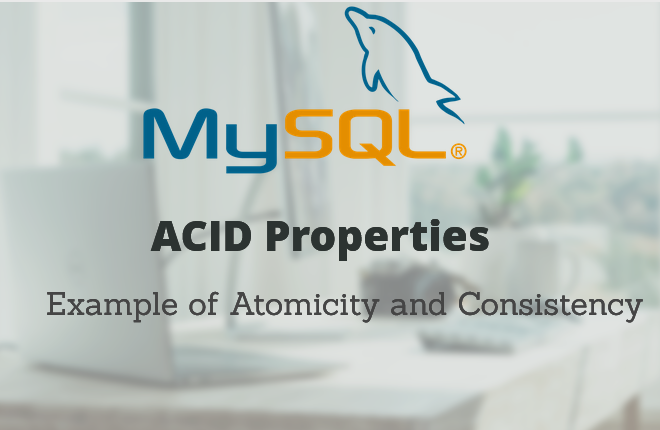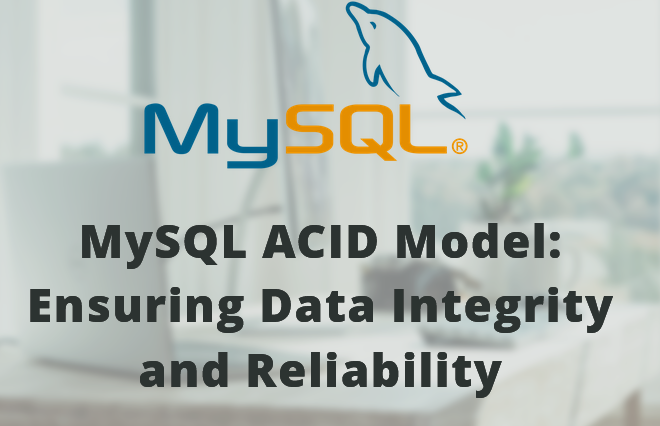MySQL
ACID Properties: Basic Example of Atomicity and Consistency
The ACID properties—Atomicity, Consistency, Isolation, and Durability—are fundamental principles that ensure reliable transactions in a database. To know more about ACID Properties, This article focuses on two key properties: Atomicity and Consistency, with practical examples using MySQL. ACID Properties in MySQL A transaction’s atomicity guarantees that several database operations are handled as a single unit. […]
MySQL ACID Model: Improve Data Integrity and Reliability
MySQL has InnoDB storage engine, that strictly follow the ACID Model to prevent data corruption and results distortion from unexpected occurrences like hardware failures and software crashes. You don’t have to design consistency checks and crash recovery techniques when you can rely on features that comply with ACID standards. If your hardware is extremely dependable, […]
2 Quick and Efficient Ways to Import MySQL Database
A common task in database management is exporting and import MySQL database. You can use this procedure to transfer data between servers, backup data, or restore data to a previous state. These tasks can be completed in a number of ways, including with command-line tools and graphical user interfaces. The procedures for exporting and importing […]
MySQL PHPMyAdmin: Increase Upload Limit
MySQL PHPMyAdmin is a popular web-based database management tool that allows users to interact with MySQL databases through a user-friendly interface. While PHPMyAdmin is a versatile tool, it does come with certain limitations, one of which is the default upload limit for importing databases. In this article, we will guide you on how to increase […]



